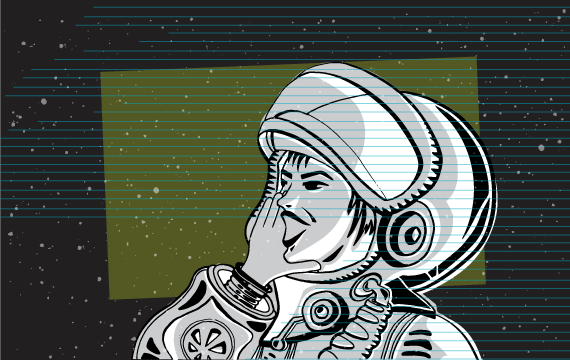PartisanshiP as a concept was introduced by Engels in the workers' movement, he believes in taking a partisan stance on the side of the oppressed (in Engels' case in the class struggle). With regard to discrimination and/or (sexualized) violence, he thinks he is partial to those affected and to those who are marginalized in discrimination situations.

Partisanship is an inner attitude that is actively directed outward.
With this attitude, one takes a partial stand by the people who are oppressed and exploited within a relationship of domination.
The concept of partisanship is related to social structures (power relations). So partisanship as an attitude is used in relation to all power relations. Partisanship can also be understood as solidarity. It reflects the knowledge that there can be no neutral position within power relations.
Thus, partisanship also represents knowledge about power relations, an active engagement with them and a reflection of one's own social position within the power relations. Having this inner attitude does not mean that one has to find the affected person sympathetic or understand or approve of each of their actions or actions, but that one has to be partial to them. In the sense of partisanship, it is a political awareness that expresses that one knows that oppression, exploitation and violence take place within and through relationships of domination, and that one therefore takes a partisan side with the oppressed.
The power of definition as a concept was developed by women-lesbians in the second women's movement, who defended themselves against the violence they had experienced, asserted themselves and stood by one another. They helped each other, helped those affected and showed solidarity with them.

The power of definition as a concept was developed by women-lesbians in the second women's movement, who defended themselves against the violence they had experienced, asserted themselves and stood by one another. They helped each other, helped those affected and showed solidarity with them.
The concept of the power of definition arose because experience showed that this concept was necessary. It is therefore not an approach derived from theory or science, but a concept based on empirical knowledge. It is not about giving someone the power of definition in the abstract, but about the concrete well-being of those affected. The power of definition is a tool that those affected can use when they deem it necessary to counteract the reactions they are experiencing. The focus of the power of definition is the perspective and needs of those affected, their needs represent the starting point of all action. The concept of the power of definition was developed in relation to heteronormative structures. Women/Lesbians fought back against the sexism and sexualized violence that emanated from white cis men. The concept is now applied intersectionally. Power of definition means that the person concerned defines what happened to her. It defines what was done to her and what form of sexualised violence or discrimination she had to endure. She chooses the term she uses to describe violence. That doesn't mean that she has to do it or that she has to do it alone, she often does it in exchange with friends, supporters or advice centers. The power of definition also makes it clear that the power to define and decide does not lie with a third, supposedly independent authority, then this supposed neutrality does not exist, which is also shown by the partiality approach.
See Ann Wiesental, Antisexistische Awareness – Ein Handbuch, Unrast Verlag
Selected Works

Geschichte und GründungGrundlagen

History and foundationBasics

Parteinlichkeit und DefinitionsmachtGrundlagen

KonsensAwareness im Alltag

ConsentAwareness in everyday life

Kritische MännlichkeitAwareness im Alltag

Critical masculinityAwareness in everyday life

Strukturelle Gewalt an FLINTA*-PersonenGrundlagen

Structural violence against FLINTA* peopleAwareness in everyday life
